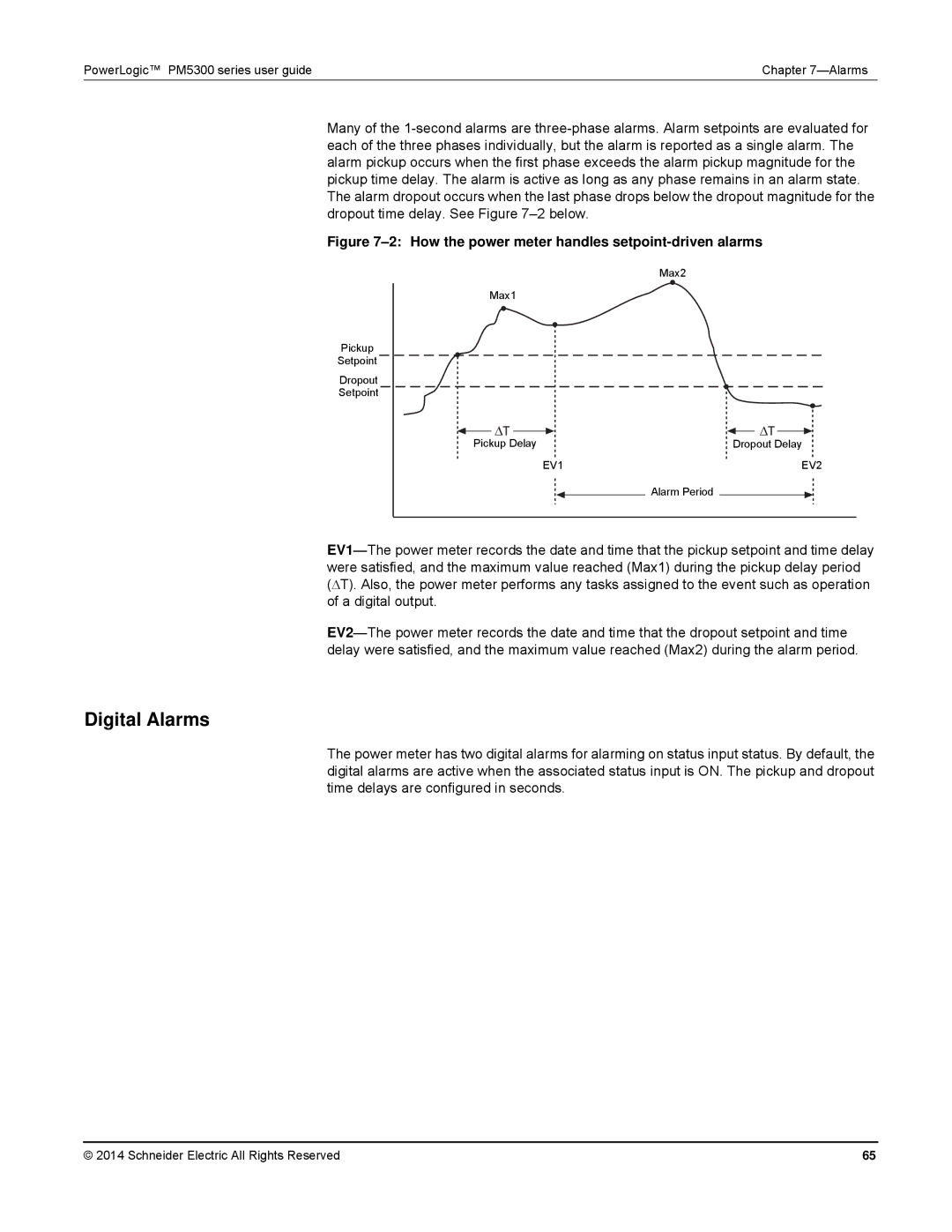
PowerLogic™ PM5300 series user guide | Chapter |
Many of the
Figure 7–2: How the power meter handles setpoint-driven alarms
Pickup
Setpoint
Dropout
Setpoint
Max2
Max1
| ΔT |
|
|
|
|
|
| ΔT |
|
|
|
|
|
|
| ||||||||
Pickup Delay |
|
| Dropout Delay | ||||||||
|
| EV1 |
|
|
|
|
| EV2 | |||
|
|
|
|
| Alarm Period |
|
| ||||
|
|
|
|
|
| ||||||
Digital Alarms
The power meter has two digital alarms for alarming on status input status. By default, the digital alarms are active when the associated status input is ON. The pickup and dropout time delays are configured in seconds.
© 2014 Schneider Electric All Rights Reserved | 65 |
